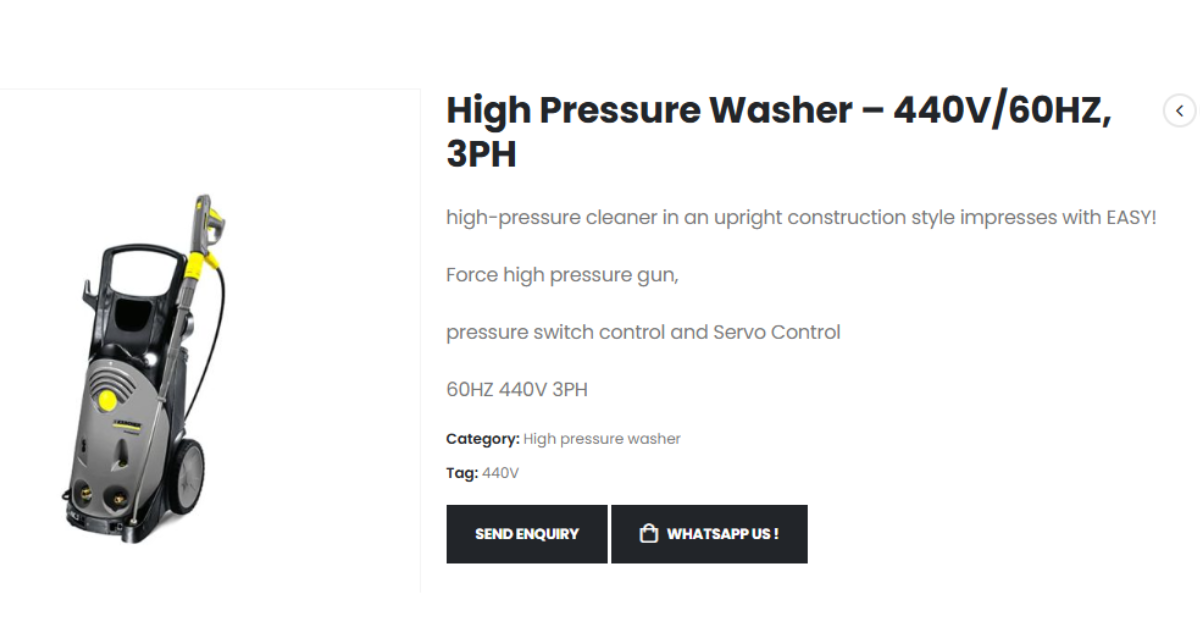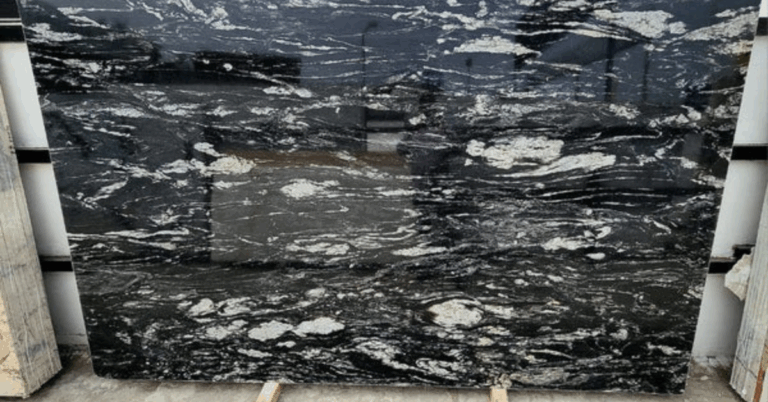Understanding 60Hz Pressure Washers: What You Need to Know Before Buying
Pressure washers have become essential tools for cleaning driveways, vehicles, patios, decks, and industrial surfaces. When shopping for one, you’ll encounter models labeled as 60Hz Pressure Washer. But what does that mean, and why does frequency matter? This article from Royal Light LLC will walk you through everything you need to know about 60Hz pressure washers—including how they work, how they differ from 50Hz models, and how to choose the right one for your needs.
What Does 60Hz Mean in Pressure Washers?
Hertz (Hz) refers to the electrical frequency of the alternating current (AC) power supply. In most parts of North America, the electrical grid supplies power at 60Hz, while in other parts of the world like Europe and Asia, the standard is 50Hz.
A 60Hz pressure washer is designed to operate specifically on a 60Hz power supply. This frequency directly affects how the motor runs, which in turn influences the overall performance and longevity of the pressure washer.
Why Electrical Frequency Matters
The frequency of the power supply affects:
- Motor Speed: The internal motor of a pressure washer is calibrated to spin at a rate determined by the frequency. A 60Hz motor will operate faster than a 50Hz motor.
- Water Pressure Output: Since motor speed affects the pump, 60Hz units generally offer slightly higher water flow rates and pressure.
- Durability: Running a pressure washer at the wrong frequency can lead to overheating, mechanical failure, or reduced efficiency.
Key Features of 60Hz Pressure Washers
Here are some characteristics commonly found in 60Hz pressure washers:
1. Optimized for North American Power Grids
These units are built for 120V or 240V systems at 60Hz, which makes them ideal for homes and businesses in the United States, Canada, and parts of Latin America.
2. Consistent Motor Speed
A 60Hz-rated washer runs at a designed speed, ensuring reliable cleaning pressure and minimizing stress on internal components.
3. Higher Performance Range
In many cases, 60Hz pressure washers offer slightly better performance metrics (like PSI and GPM) compared to their 50Hz counterparts when tested under the same conditions.
4. Available in Multiple Power Levels
From residential electric models (around 1,300–2,000 PSI) to heavy-duty commercial gas-powered machines (3,000+ PSI), there are 60Hz models across all categories.
Types of 60Hz Pressure Washers
Electric Pressure Washers
- Quieter and lighter
- Ideal for home use: cleaning cars, decks, furniture, and siding
- Typical specs: 1,400–2,000 PSI, 1.2–1.6 GPM
Gas-Powered Pressure Washers
- More powerful
- Used for commercial, industrial, or outdoor-heavy tasks
- Typical specs: 2,500–4,000+ PSI, 2.3–4.0 GPM
Hot Water vs Cold Water Models
- Cold water models are common and versatile
- Hot water models are used in industrial cleaning where grease and oil are involved
60Hz vs 50Hz Pressure Washers: What’s the Difference?
If you’re considering importing a washer or relocating between countries, you may be comparing 60Hz to 50Hz models. Here’s how they stack up:
| Feature | 60Hz | 50Hz |
| Motor Speed | Faster | Slower |
| Water Flow Rate | Slightly higher | Lower |
| Availability | North America | Europe, Asia |
| Performance | More efficient in 60Hz regions | Less efficient if used on 60Hz grid |
| Compatibility | Best for U.S., Canada | Best for EU, UK, Asia |
Important Note: Running a 50Hz pressure washer on a 60Hz grid (or vice versa) can lead to damage unless the machine is rated for dual-frequency use (50/60Hz).
Can You Use a 60Hz Pressure Washer in a 50Hz Country?
Technically, yes—but only if the unit supports dual-frequency (marked as 50/60Hz on the label). If not, using a 60Hz-only washer on 50Hz power can result in:
- Reduced motor speed and water pressure
- Overheating and internal damage
- Warranty voidance
Using a frequency converter can allow you to safely operate a 60Hz washer on a 50Hz system, but such equipment is expensive and impractical for casual use.
Best Use Cases for 60Hz Pressure Washers
If you are in a region with 60Hz electrical supply, these washers are ideal for:
Residential Applications
- Cleaning vehicles
- Washing patios and sidewalks
- Removing dirt from siding and fences
Commercial Use
- Graffiti removal
- Fleet washing
- Agricultural equipment cleaning
Industrial Tasks
- Oil rig and factory floor cleaning
- Heavy machinery degreasing (hot water units)
What to Consider Before Buying a 60Hz Pressure Washer
1. Power Source
Do you want a gas-powered or electric unit? Electric is more eco-friendly and requires less maintenance, while gas provides more pressure and mobility.
2. Pressure and Flow Rate
Match the PSI and GPM to your cleaning task. For light work, 1,500–2,000 PSI is fine. For stripping paint or removing heavy grime, look for 3,000+ PSI.
3. Portability and Storage
Check if the washer has wheels, handle height, and hose storage features suitable for your use.
4. Nozzle and Accessory Options
Adjustable nozzles, turbo tips, and surface cleaners can expand the machine’s versatility.
5. Manufacturer Reputation
Stick to well-known brands or professional-grade suppliers like Royal Light LLC, who can ensure you get the right electrical compatibility.
Common Mistakes When Using 60Hz Pressure Washers
- Using wrong voltage: Even with the right frequency, the wrong voltage can blow motors or damage the unit.
- No ground fault protection: Always use GFCI outlets for safety.
- Running dry: Operating the washer without water flow can destroy the pump.
- Improper nozzle: Using a narrow-angle nozzle too close can strip paint or etch surfaces.
Frequently Asked Questions (FAQ)
What does 60Hz mean on a pressure washer?
It refers to the electrical frequency the motor is designed to run on. A 60Hz pressure washer is built for power supplies that operate at 60 cycles per second, common in the U.S. and Canada.
Can I use a 60Hz pressure washer in a 50Hz country?
Only if the washer supports dual-frequency (50/60Hz). Otherwise, doing so can damage the unit or reduce performance significantly.
Is a 60Hz washer more powerful than a 50Hz one?
The motor in a 60Hz washer typically runs faster, which can lead to a slightly higher water output and pressure—assuming all other specifications are equal.
Do I need a voltage or frequency converter for my pressure washer?
Only if your pressure washer is not compatible with the local power supply. For example, a 60Hz, 120V washer used in a 50Hz, 220V country will need both a voltage and a frequency converter.
Can I convert my 60Hz pressure washer to 50Hz?
This is not recommended. Converting frequency requires specialized equipment, and most units are not designed for retrofitting. It’s better to purchase a model designed for the local power standard.
Conclusion
A 60Hz pressure washer is the ideal choice for North American consumers looking for consistent, efficient, and powerful cleaning tools. These machines are designed to work with local electrical standards and offer superior performance when matched with the correct voltage and frequency.
Whether you’re buying for residential, commercial, or industrial use, understanding how frequency affects performance is key to choosing the right pressure washer. At Royal Light LLC, we provide high-quality, frequency-compatible equipment and expert advice to ensure you get the most from your purchase.







